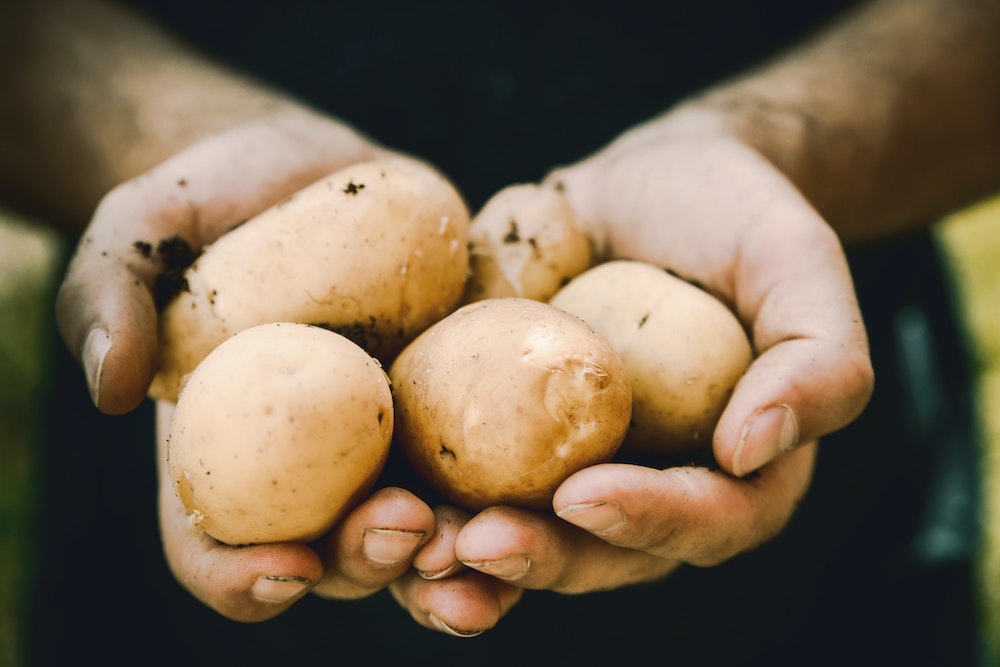Foods High in Potassium That Nobody Told You About

When you think about foods high in potassium, you may automatically think of "bananas." And sure, bananas are a well-known source of potassium for a reason. But did you know that many foods with a potassium content exceed that of bananas?
Potassium is both an electrolyte and a mineral. The body requires it for muscle, heart, and respiratory health.
It is also necessary for proper hydration. The body takes as much potassium as it needs, and the kidneys filter the rest out of the blood.
It's easy to find foods with potassium. After exploring this short list of foods, you'll learn that this readily available nutrient is likely included in your diet (whether you eat bananas or not).
Foods High in Potassium
Sweet Potato
Sweet potatoes are a delicious choice for obtaining potassium; depending on the size, sweet potato contains approximately 800 to 900 milligrams of potassium.
Sweet potatoes are a fantastic food that can be prepared in many ways—steamed, baked, roasted, mashed, and more! They're loaded with other nutrients and are easily considered more nutritious than white potatoes. Overall, sweet potatoes are a win for those seeking sources of potassium.
Wild-Caught Salmon
An entire fillet of salmon contains about 1500 milligrams of potassium. Wow!
Plus, the verdict has been in for a long time about salmon being a healthy food. It boasts beneficial omega-3 fatty acids that aid the health of the heart, joints, and nervous system.
Coconut Water
Coconut water is a great way to get potassium through a liquid. Containing around 600 milligrams per cup, coconut water is excellent to use as a sports drink.
Because coconut water is a relatively high-sugar liquid, we suggest using it pre- or post-workout. Also, try to get your coconut water from fresh coconuts instead of cans or boxes.
Spinach
A cup of cooked spinach contains about 900 milligrams of potassium. Spinach is one of those potassium-rich foods that's easy to eat daily.
Spinach, for example, tastes very mild in smoothies. Throw a handful into a delicious smoothie recipe, and you won't even know it's there. Whether raw in a smoothie or steamed as a side for a more savory meal, a bit of spinach per day can do a lot for your potassium stores.
Swiss Chard
Another leafy green to add to the count. Like spinach, swiss chard boasts about 900 milligrams of potassium per cup.
Swiss chard is also volatile, which is an easy way to get potassium benefits. It makes frequent appearances in salads, smoothies, and evening meals.
Sardines
Making our way down the list, we inevitably make it to sardines. With about 400 milligrams of potassium per can, sardines are frequently called "nature's perfect food." Besides potassium, sardines contain large amounts of B vitamins, vitamin D, collagen, omega-3 fatty acids (including EPA and DHA), and some vitamin A in retinol.
People commonly enjoy sardines right out of the can as a snack or small meal. They're also great in buddha bowls and Asian dishes. Try mashing your sardines with dill and organic mustard for a nice paste or sandwich filling.
Beetroot
Beetroot is one of those potassium sources that people often enjoy—or don't. It's worth mentioning here because, although it doesn't contain as much potassium as many of the foods listed above, it still includes 250 milligrams per ½ cup. Aside from its source of potassium, beetroot has become commonly known for its ability to cleanse blood.
Beetroot can be eaten raw and is popularly diced, spiralized, or shredded into salads. Steaming beets is also a good option, and they're even successfully included in soups, stews, and roasts.
Peas
Peas are enjoyed by most, which is good; they contain an excellent 350 milligrams of potassium per cup. They're also very healthy in other ways. In a review of the health benefits of peas, researchers found that peas contain beneficial polyphenols that exhibit anticancer properties.
Peas are versatile. They can be included in the salad, stirred into your favorite coconut curry dish, or eaten as a side at Thanksgiving dinner.
Final Thoughts on Foods High in Potassium
By the end of this article, you should have learned a few critical things about foods with potassium.
Potassium is an electrolyte and mineral. Electrolytes are essential for muscle function throughout the limbs and organs. It's critical to consume electrolytes like potassium during or after intense exercise.
Potassium-rich foods are easy to come by. You're likely already consuming an ample amount of potassium daily.
Foods such as salmon, sardines, avocado, sweet potato, and spinach are all sources of potassium that contain considerable versatility. These foods can be prepared in many ways and eaten at multiple meals.
Now you know that plenty of foods besides bananas can fuel you with potassium!
